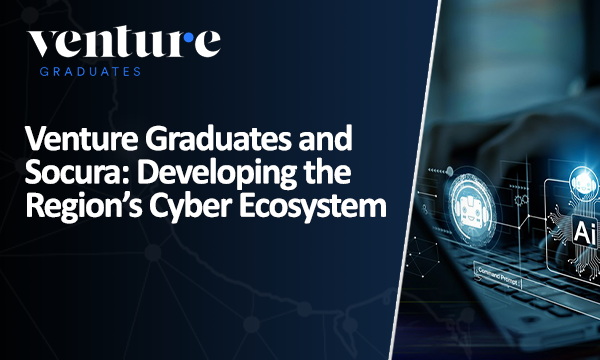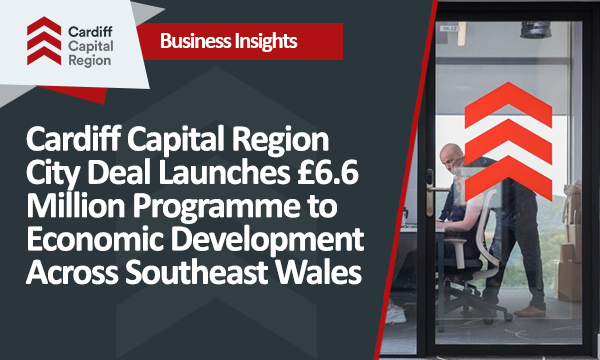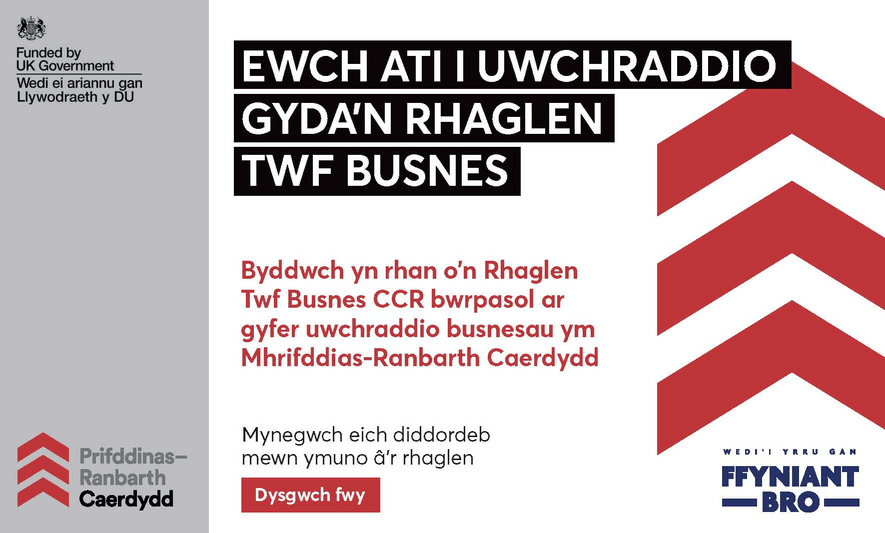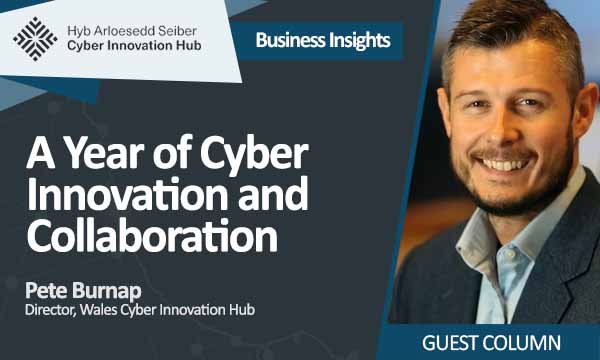As Cardiff Capital Region moves from a ‘City Deal’ towards a much broader and strategic approach based on the economic geography of the whole of South East Wales, our ‘Reimagining the Region’ series has already shown how strong foundations have been put in place, providing a robust platform to build inclusive growth right across the 10 unitary authorities that make up CCR.
Last week, we reviewed the findings of the 2020/21 SQW Report /Gateway Review, which gave a positive independent validation and firm endorsement of CCR’s work to date – noting our measurable progress towards achieving a far wider and much deeper delivery to the whole region.
Moving from a City Deal to a City Region
The SQW/Gateway Reports make it clear that there’s a significant opportunity to build out the future of the Region using the CCR City Deal as a proven platform to help level-up and build back better and fairer for the whole of South East Wales. Achieving that will enable us to move away from a dependency culture to a fully empowered, skilled and forward-looking region able to compete – and win – on our own two feet. Creating confidence and results through collaboration and common purpose, rather than relying on top-down intervention, is at the very heart of this; especially if it gives us the opportunity to integrate the City Deal alongside other programmes with broader horizons. If we do that, and build on all the data, the evidence-to-date and the results already proven, we’ll shape a much wider and deeper delivery that serves everyone and all communities.
We’ve worked hard to improve how we measure the effectiveness of the decisions we take and the interventions we make
We’ve developed a rich seam of data and insight to facilitate quality assessments and decision making. Being fully prepared for the National Evaluation Framework and the Gateway Review saw us conduct an analysis of Priority Sectors, develop a Local Evaluation Framework, deliver a 1st Baseline Report and ‘One Year Out’ Report, secure two PhD studentships in Data Science and Analysis, retain Cardiff University to work on our economic intelligence database and dashboard data observatory, work closely with Nesta to inform the Future Ready Skills Framework, produce three ‘State-of-the-Region’ reports, conduct four Renewable Energy studies for Metro Plus – and submit a Full Economic Impact Assessment for the Compound Semiconductor sector in support of our bid for UKRI Strength in Places funding. This has seen us become a trusted partner contributing to both the Devolution White Paper and several OECD studies into the needs and potential of our region.
From the outset, we’ve sought to bring priorities and focus to our vision and values.
We’ve created integrated, fact based and flexible regional industrial growth plans and a robust leadership capability. Our Regional Industrial and Economic Growth Plan was created with the widest possible range of stakeholders and aligned with both the Welsh Government Economic Action Plan, and the UK-wide Industrial Strategy – embedding sector-by-sector analysis into our approach, with our planning activity endorsed by the CBI, FSB and IoD. This allowed us to progress with a real purpose through the pandemic without any fundamental pivot, by enabling our COVID-priorities to align with the broader plan – from helping CCR businesses navigate funding packages and ensuring entrepreneurs and start-ups got the support they need, to investing in Creo Plasma Technology, setting up a new Rebuilding Local Economies Challenge Programme, developing a new strategic sites and premises fund, commencing development of an SME Innovation co-investment fund and generally supporting key businesses in the priority sectors to increase their resilience and capacity through the crisis.
On the social, environmental and community priorities in a post-Covid world, Cerys Furlong, CEO Chwarae Teg and member of the CCR REGP and Investment Panel said;
“This should be a massive opportunity to get people who’ve been locked out of the labour market previously into work. Disabled people, for example, have extremely low rates of employment. With lots of organisations switching to remote and off-site working, that should enable us to recruit much more diverse people into our places of work, which has to be good for everybody. We must reinforce some of those positive things that we’ve learnt, so we can have a positive impact on the environment, the economy and our communities. Let that be the legacy of Covid-19”
The outcome is a proven and widely endorsed CCR Industrial Plan that’s able to flex and remain relevant – and also help inform the next stage of “levelling up”. The last 12 months has raised key policy questions that haven’t yet been answered, of course – including ‘who’ and ‘what’ is the region? Who leads and where are we heading? The answers, however are becoming apparent as plans for new regional Corporate Joint Committees develop.
We have a combined pipeline of £350m approved and pending projects that are expected to generate in excess of £3.5bn in private leverage.
Our Investment Framework has already realised a delivery pipeline of £198.5 approved projects with a further £150m of proposals at an advanced stage of development. Together these create a potential combined leverage currently valued at over £3.5bn. This has been developed through three different types of funds – Innovation, Infrastructure and Challenge – and incorporated five priority sector Clusters, making best use of the REGP leadership and experience, as well as the invaluable advice of our Investment Panel.
The scale and scope of the delivery pipeline speaks for itself – and includes:
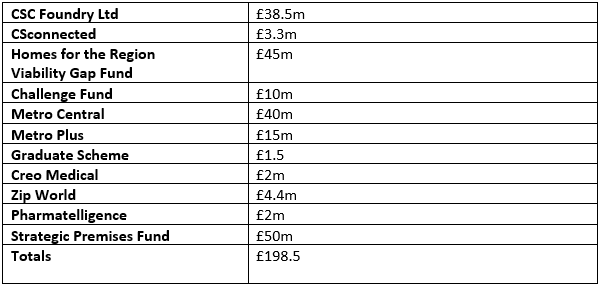
Some of the proposals being considered in the £150m immediate future pipeline include; UKRI Strength in Places bids for the Cyber and Creative sectors, following in the footsteps of our successful funding award of £25.6m for the compound semiconductor cluster in summer 2020; a full fibre to the premise proposal, an SME Innovation Investment fund for scaling up SME’s; and a range of other potential new investments including supporting Fintech and Medtech through the Coryton Life sciences Park.
Many of our developments – Metro Plus, the housing viability gap fund, SME housebuilding, the Challenge Fund and Zip World are all really aimed at local everyday wealth building- which is a fundamental principle inherent within our investment philosophy.
On the £10m Challenge Fund in particular, Philippa Marsden, Leader Caerphilly Council and Regional cabinet member said:
“This is an exciting fund and it couldn’t come at a better time. It offers us opportunities to look at old, systemic issues through new lenses. The future requires us to rethink and reshape, to embrace innovation and change and to work with greater agility and collaboration to create new markets and better, more sustainable futures. This initiative allows us to do that and I am looking forward to playing a full and active role in driving this initiative forward.”
An inclusive investment philosophy designed to increase prosperity for all
In agreeing the above investments, our funding philosophy and strategy has been focused on the following key principles;
- That every place, across the 60 mile breadth of the region, benefits from foundational investments such as our Metro Plus programme, the Housing Fund and the new Strategic Premises Fund. This is to ensure there’s a base level of infrastructure that every place across the whole region can benefit from.
- That we deliver inclusive growth. Our approach embraces investments and projects that may not be fully commercial, but which also create jobs, and making sure that the benefits of the City Deal are spread widely throughout the region. That means that we won’t just be focusing on the ultra-attractive, high value added manufacturing and high tech enterprises that grab a lot of headlines, but we’ll also be looking to see what we can do to foster foundational employment and better employment connectivity.
- That our investment funds are evergreen, because one of the things the City Deal is charged with is trying to leverage its impact. We could in theory go out and spend everything on grants for projects with short shelf lives – after which the funds are gone and we go back to normal. But the idea is that we use the funds to amplify private sector involvement where possible, to partner up and ideally to perpetuate the longevity of those funds by recycling returns and repayments back into other projects.
- That we follow the market and ensure the funds operate flexibly to follow the best opportunities for the region, wherever in the region that might be. Our job is to ensure we develop programmes of integrated projects that build out the eco-systems and supply chains that enable our clusters to operate with optimal impact.
We have extended our voice, reach and influence beyond expectation – but what’s needed next?
As seen in previous articles, SQW rated our Governance as ‘Good’, but new ends require new means, with the Gateway Review also highlighting our need for a more consolidated governance process that is simpler, more efficient and more ‘user friendly’. We have been recognised for our growing maturity and a shift towards a scale-up phase, with new arrangements for scrutiny already enacted, partnerships being subjected to refresh reviews and a major independent review of the Regional Business Council already undertaken. The outcomes to date have been hugely positive, as we continue to develop our role across the region, becoming central to big debates and research programmes, gaining wider recognition and support from Ministers and the Cabinet Office. But – and it’s a big ‘but’ – there are clear issues with the current City Deal structure as there isn’t a legislative base in Wales for Combined Authorities; and there’s a strong argument that such a partnership-heavy structure isn’t sustainable.
A move towards CJC and the Five for Five Strategy
To build upon all the good work of the past four years, we must now develop a core function within the CCR team that focuses on data, policy and influencing. We need more co-operation and co-production, more risk taking and rewards, more empowered business leadership and business engagement – and the opportunity to truly leverage our value as a Region. The focus on the single investment City Deal is limiting our opportunities. The City Deal is significant, but a move to a City Region will be fundamental to a more self-reliant and sustainable CCR. That will be built on the ‘Five for Five’ Strategy of five core pillars that underpin our pathway towards 2025 and beyond. Next week we’ll detail those ‘Five for Five’ – and our planned evolution of governance and structure.




